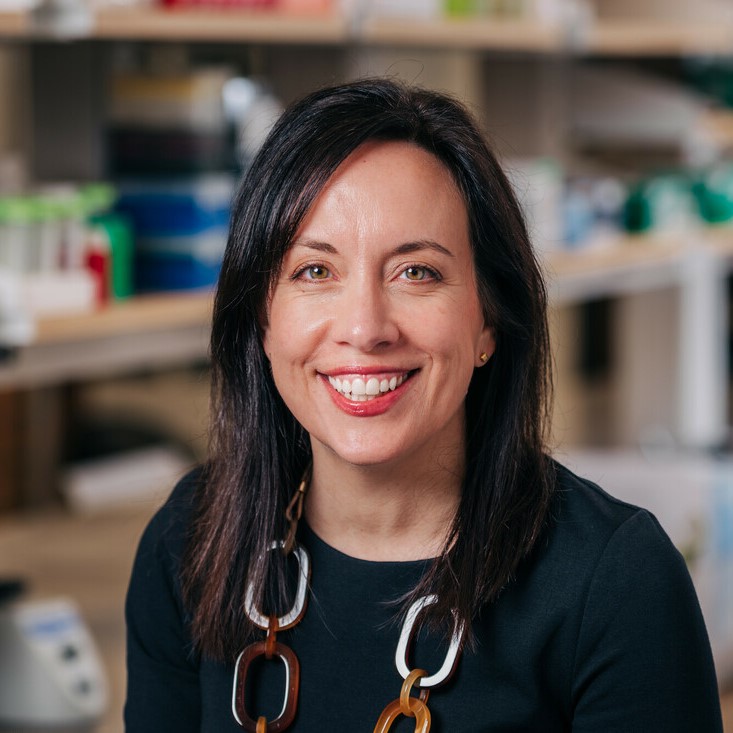UAB Heersink School of Medicine has awarded three grants for the latest round of Multi-Investigator Program (Multi-PI) Awards.
These grants enable Heersink School of Medicine faculty members to organize and integrate multi-disciplinary teams of accomplished investigators that will compete successfully for long-term support from funding agencies. Grant support allows researchers to prove the feasibility of working as a cohesive team and aids in acquiring resources, preliminary data, and/or administrative support needed to operate as an interdisciplinary research program.
The 2022/2023 AMC21 Multi-PI Awards, which are each funded with $150,000 per year for two years, were awarded to the following research investigators:
-
Javier Neyra, Department of Medicine, Division of Nephrology
-
Carlos Orihuela, Department of Microbiology
-
Anna Thalacker-Mercer, Department of Cell, Developmental and Integrative Biology

Javier Neyra, M.D., associate professor in the Division of Nephrology, co-director of the Critical Care Nephrology program, and co-director of the Clinical Core of the UAB/UCSD O'Brien Center for Acute Kidney Injury Research, was awarded a Multi-PI Award for his study “Adaptive Clinical Trial in Critical Care Medicine (Adapt-CT).”
COVID-19 provided many moments of insight, including the need for a highly functional clinical trial infrastructure that allows the medical community to rapidly test novel protocols and interventions, facilitate cooperation across study and clinical teams managing shared patient pools, and maintain uniform and easily accessible electronic health records (EHR).
Through this study, Neyra and his group of multidisciplinary UAB investigators will build upon their vast collective experience in clinical trials and the implementation of a COVID-centric clinical trial coordination initiative to launch an innovative EHR-based platform designed to enhance study participant screening, study enrollment, and data capture of critically ill adult patients with sepsis across the UAB health system.
"We are grateful for the opportunity of being awarded with this grant and are fully committed to the development and execution of this project, which we believe will provide a unique and needed tool for clinical trial implementation in the UAB ICUs."
In addition to Neyra, his team includes Derek Russell, M.D., assistant professor in the Division of Pulmonary, Allergy and Critical Care Medicine; Nathan Erdmann, M.D., Ph.D., assistant professor in the Division of Infectious Diseases; Peter Morris, M.D., professor in the Division of Pulmonary, Allergy and Critical Care Medicine; Lama Ghazi, M.D., Ph.D., assistant professor of Epidemiology in the School of Public Health; Andrew Barker, M.D., associate professor in the Department of Anesthesiology and Perioperative Medicine; Ashita Tolwani, M.D., professor in the Division of Nephrology, associate director of the Nephrology Fellowship program, associate director of ICU Nephrology; Keith Willie, M.D., professor in the Division of Pulmonary, Allergy and Critical Care Medicine; Sheetal Gandotra, M.D., associate professor in the Division of Pulmonary, Allergy and Critical Care Medicine; and Marie-Carmelle Elie, M.D., professor and chair of the Department of Emergency Medicine.
 Carlos Orihuela, Ph.D., professor and interim chair of the Department of Microbiology and vice-chair of Faculty Development, was awarded a Multi-PI Award for his study “Cardiac Defense and Repair Following Invasive Pneumococcal Disease.”
Carlos Orihuela, Ph.D., professor and interim chair of the Department of Microbiology and vice-chair of Faculty Development, was awarded a Multi-PI Award for his study “Cardiac Defense and Repair Following Invasive Pneumococcal Disease.”
Orihuela, a bacteriologist, has spent the last 10 years focusing on the bacterial factors responsible for cardiac damage and the adverse cardiac events that occur during severe infections with Streptococcus pneumoniae, the leading cause of community-acquired pneumonia. During that time, he became increasingly curious about what happens from the host perspective.
“A few years ago, I wanted to start looking at this from the host side. How do heart cells protect themselves from the infection? How does the person resolve the infection in a way that is good or bad?” said Orihuela.
This perspective shift led him to begin working with UAB cardiovascular disease investigators around two years ago. While additional support has been secured, the Multi-PI Award will allow the investigative team to develop and implement the necessary infrastructure, collect preliminary data, and begin to assess what happens to the heart after an infection.
“It’s a way for us to combine our expertise and start asking the questions, ‘Why do people with pneumonia experience higher rates of heart failure after they are released from the hospital, and what can we do to improve the situation?’ And that’s a really important question because a vast majority of people who have pneumonia don’t die in the hospital,” said Orihuela.
Through this study, the group will address cardiomyocyte function during and after infection, immunological drivers of cardiac remodeling after infectious injury, and socio-economic disparities on pneumonia-associated cardiac complications.
Joining Orihuela as investigators are Palaniappan Sethu, Ph.D., professor in the Division of Cardiovascular Disease; Min Xie, M.D., Ph.D., associate professor in the Division of Cardiovascular Disease; Hind Lal, Ph.D., associate professor in the Division of Cardiovascular Disease; Chao He, M.D., Ph.D., assistant professor in the Division of Pulmonary, Allergy, and Critical Care Medicine; and Tousif Sultan, Ph.D., instructor in the Division of Cardiovascular Disease.
 Anna Thalacker-Mercer, Ph.D., associate professor in the Department of Cell, Developmental and Integrative Biology (CDIB), was awarded a Multi-PI Award for her study “Decoding the Essentiality of Nutritionally non-Essential Amino Acids for Skeletal Muscle Homeostasis.”
Anna Thalacker-Mercer, Ph.D., associate professor in the Department of Cell, Developmental and Integrative Biology (CDIB), was awarded a Multi-PI Award for her study “Decoding the Essentiality of Nutritionally non-Essential Amino Acids for Skeletal Muscle Homeostasis.”
The prevalence of neuromuscular diseases (NMDs), such as amyotrophic lateral sclerosis, or ALS as it’s better known, has been increasing in both children and adults, however, therapies to mitigate the progression are limited. While NMDs develop differently, they do have common hallmarks centered around disruption of metabolic homeostasis that can trigger or worsen the disease.
The study’s central premise focuses on the idea that in ALS cases a disruption of energy and nutrient pathways to certain cells in specific locations in the skeletal muscle cause nerve damage and deterioration in muscle tissue.
Funding from the AMC21 Multi-PI Award will allow Thalacker-Mercer and the study’s team of investigators to gather additional preliminary data necessary for a competitive NIH grant proposal.
When asked about the team working on this study, Thalacker-Mercer said, “To address our overarching hypothesis, we have harnessed the rich collaborative environment and created a multi-disciplinary team of investigators representative of multiple clinical and basic science departments/divisions across the UAB Heersink School of Medicine. This emergent team, comprised of esteemed investigators with a multimillion-dollar portfolio of federally funded research projects, has experts in nutrient metabolism, cellular and molecular biological responses, mitochondrial biogenesis and function, inflammation, complex disease traits, multi-omics analytics, and nutrient and drug discovery for human health outcomes.”
Thalacker-Mercer’s team will comprise of Matthew Alexander, Ph.D., associate professor in the Division of Pediatric Neurology; Peter King, M.D., professor in the Division of Neurology; Merry-Lynn McDonald, Ph.D., associate professor in the Division of Pulmonary, Allergy & Critical Care Medicine; and Glenn Rowe, Ph.D., associate professor in the Division of Cardiovascular Disease.